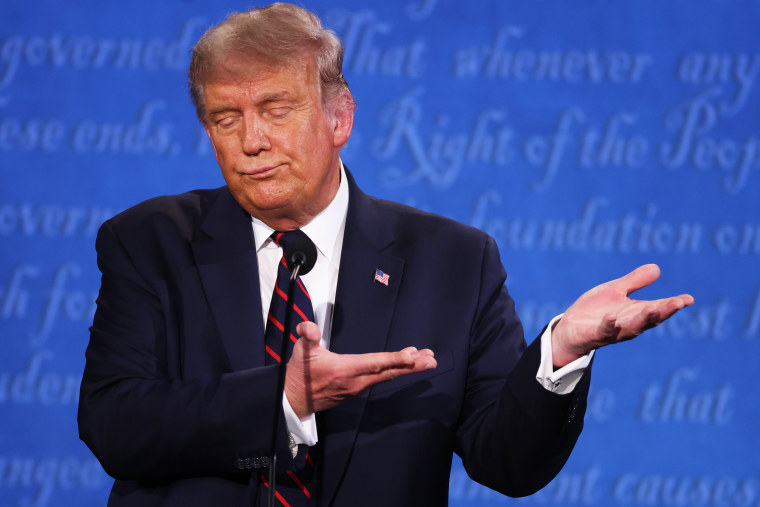As a presidential candidate in 2016, Donald Trump hedged when pressed to distance himself from racist, right-wing supporters. As a president in 2017, the Republican thought it'd be a good idea to praise the "very fine people" among the racist activists in Charlottesville.
It was against this backdrop that the president failed spectacularly to answer last night's easiest question. Asked if he's willing to condemn white supremacists and militia groups, Trump shrugged and said, "Sure, I'm willing to do that, but I would say almost everything I see is from the left wing, not from the right wing."
As a rule, when asked to condemn white supremacists and militia groups, any answer that begins "Sure, I'm willing to do that, but..." isn't going to end well. What's more, there's a difference between being willing to do something and actually doing it.
And in this case, as NBC News reported overnight, it went downhill from there:
Trump was asked by debate moderator Chris Wallace to disavow white supremacy during a part of the debate focused on race. Wallace asked whether Trump would urge white supremacist groups that inflamed violence at nationwide protests to "stand down." Trump said to "give me a name" when asked to denounce a specific group, and former Vice President Joe Biden called out the Proud Boys. But Trump did not denounce any far-right or white supremacist groups, and he then pivoted to talk about antifa.
For those unfamiliar with right-wing extremist, the Associated Press described the Proud Boys as a "male-only group of neo-fascists," who describe themselves as "western chauvinists," and "have been known to incite street violence."
At the debate, Trump went so far as to send the extremists a message: "Proud Boys, stand back and stand by, but I'll tell you what, somebody's got to do something about antifa and the left."
Not surprisingly, the right-wing extremists celebrated, not only the presidential attention, but also the presidential encouragement. It's what happens when the leader of the free world tells fringe radicals to "stand back and stand by."
Rick Santorum tried to defend Trump last night, arguing that Chris Wallace was "asking the president to do something he knows the president doesn't like to do ... which is say something bad about people who support him."
This sounds pitiful, but it's also the charitable interpretation of what transpired. By this reasoning, Trump isn't sympathetic to racist extremists; he simply appreciates the support of racist extremists and doesn't want to insult the radicals who admire him.
The less forgiving interpretation is that the president balked at denouncing his racist supporters because he agrees with them, and the president told these radicals to "stand by" because he will welcome political violence.
Last night's debate was important in a variety of ways, but nothing mattered more than this.
